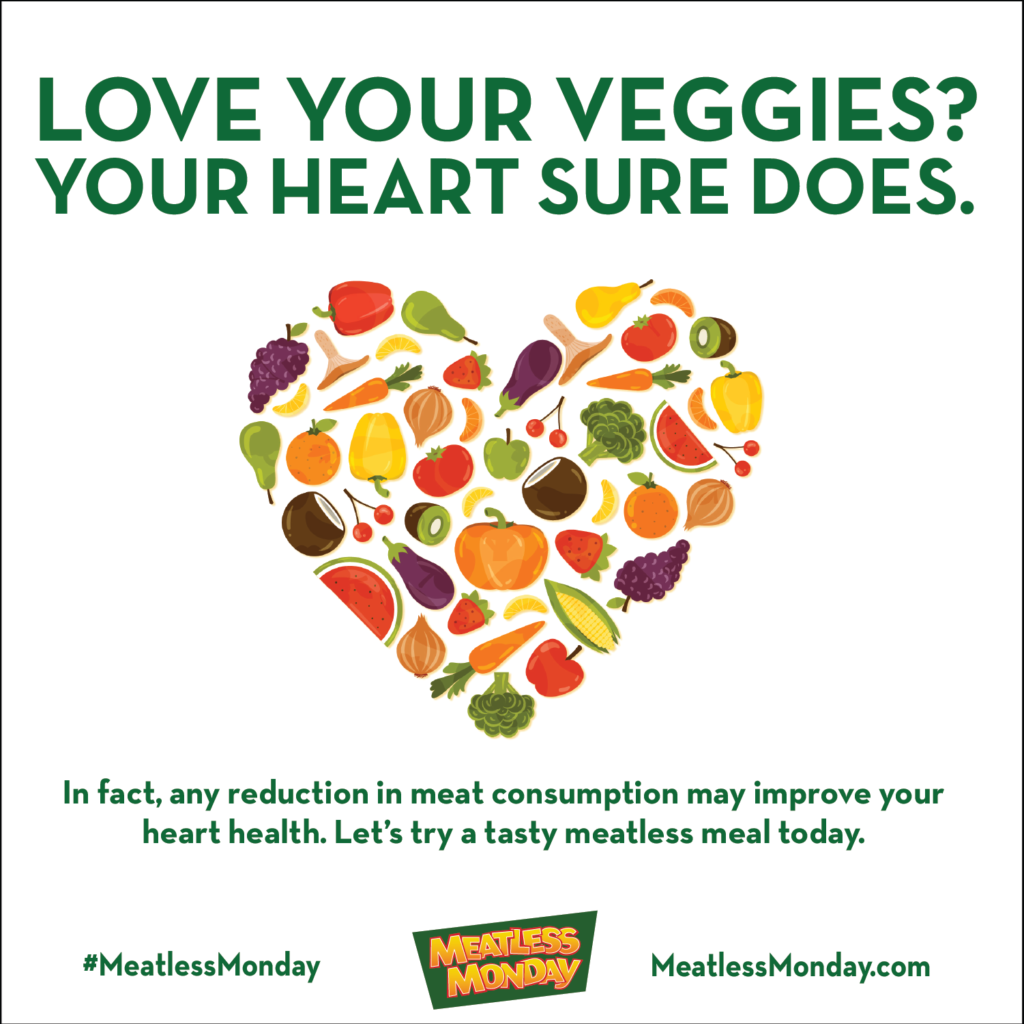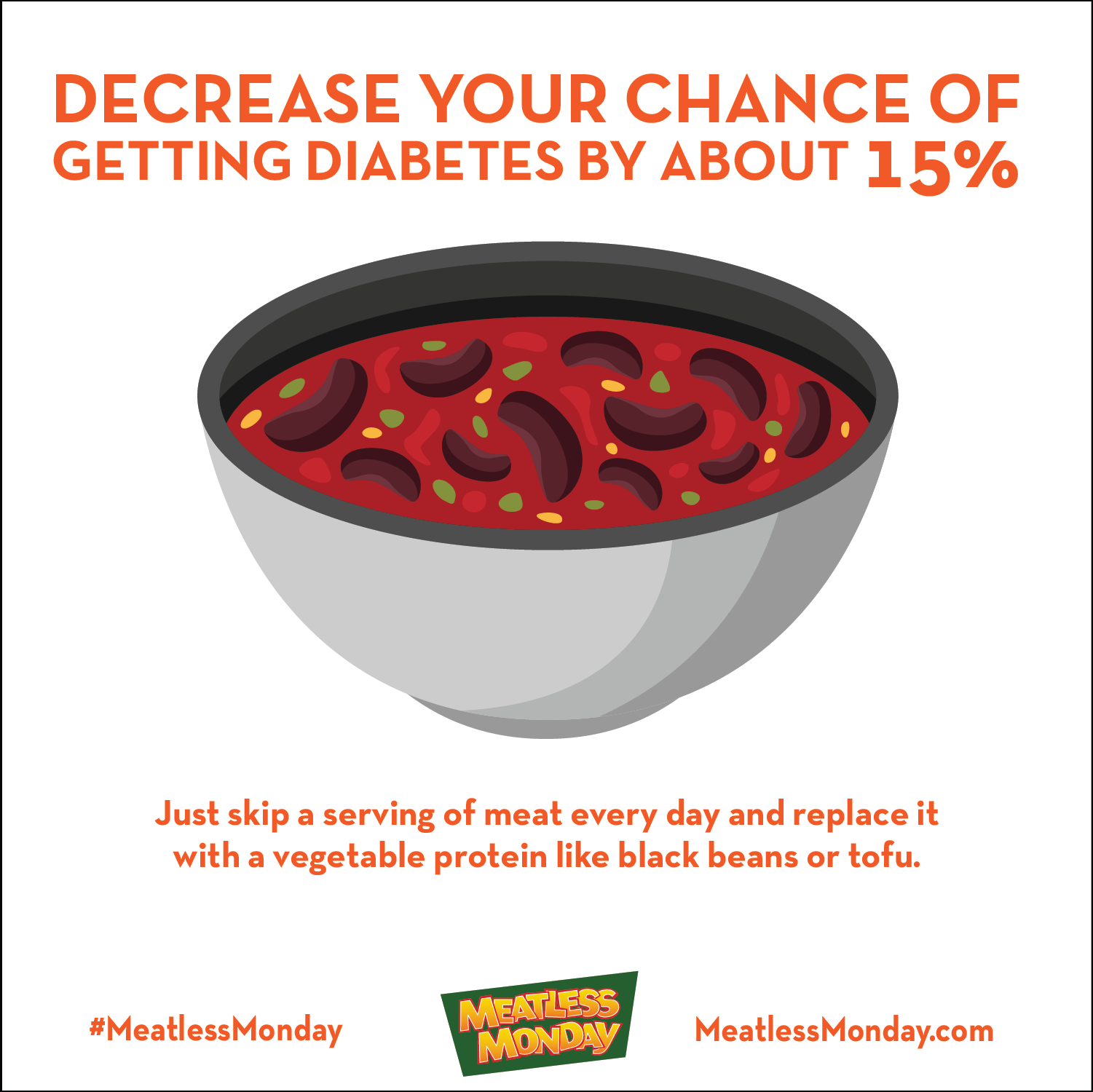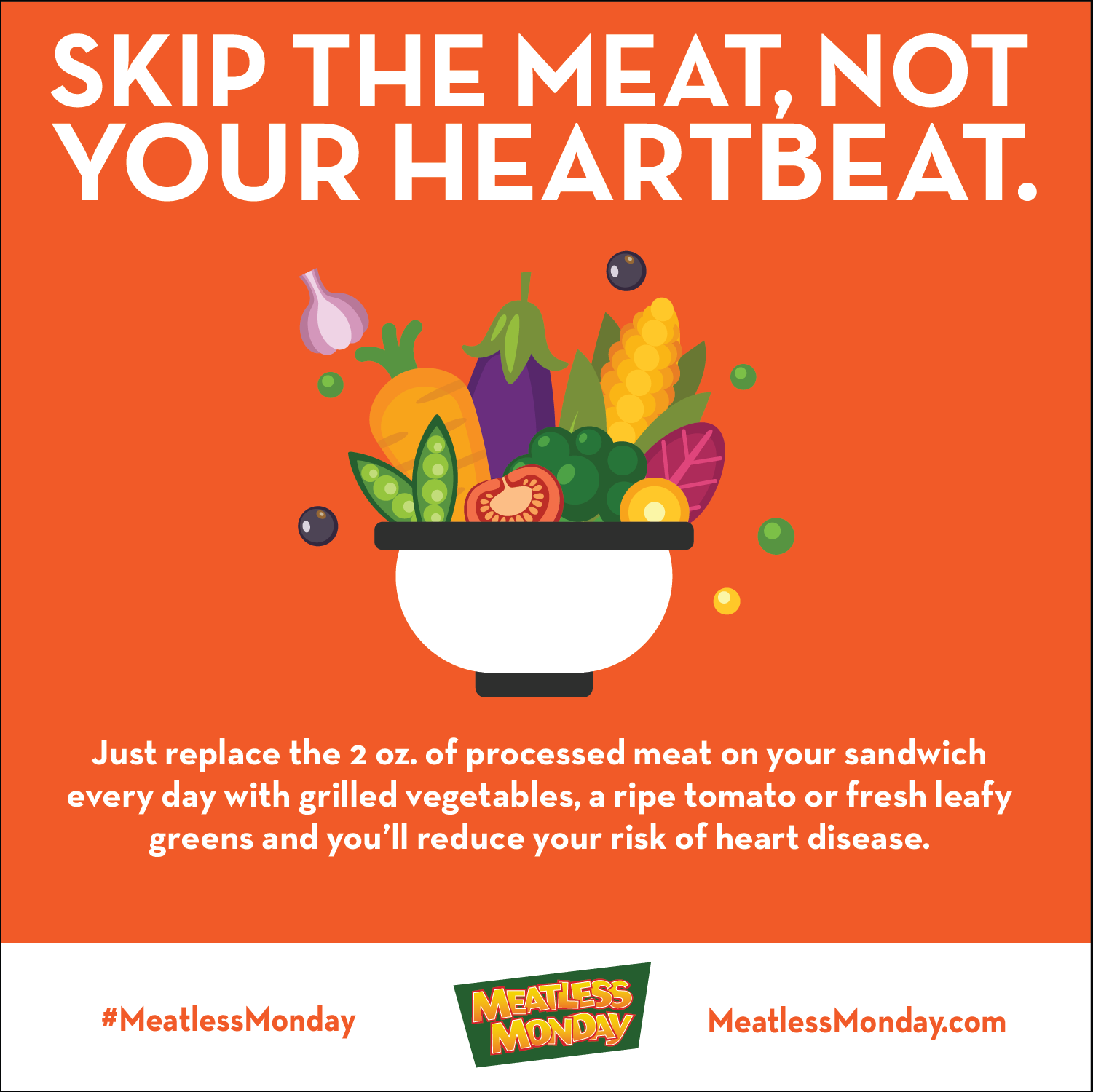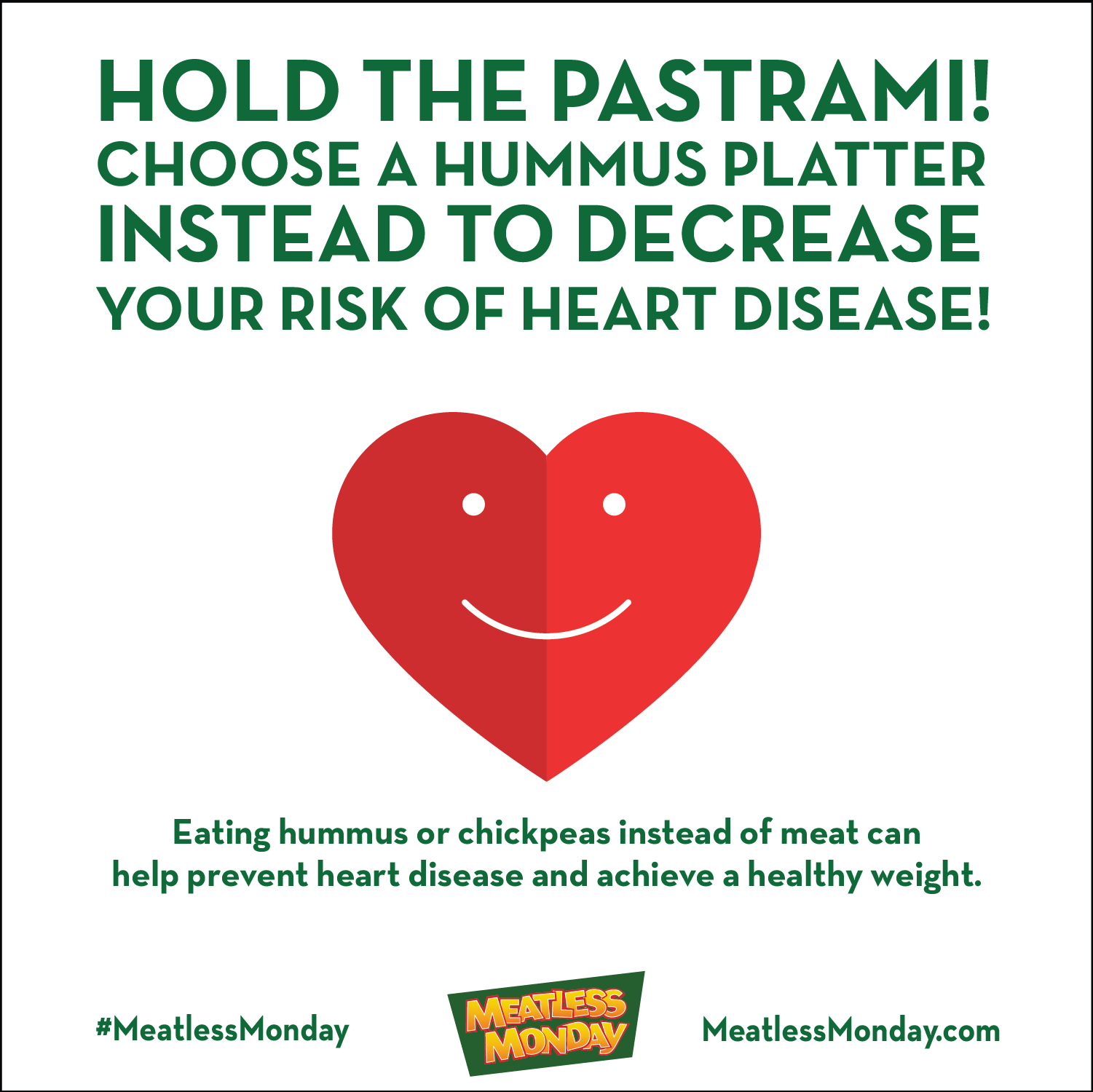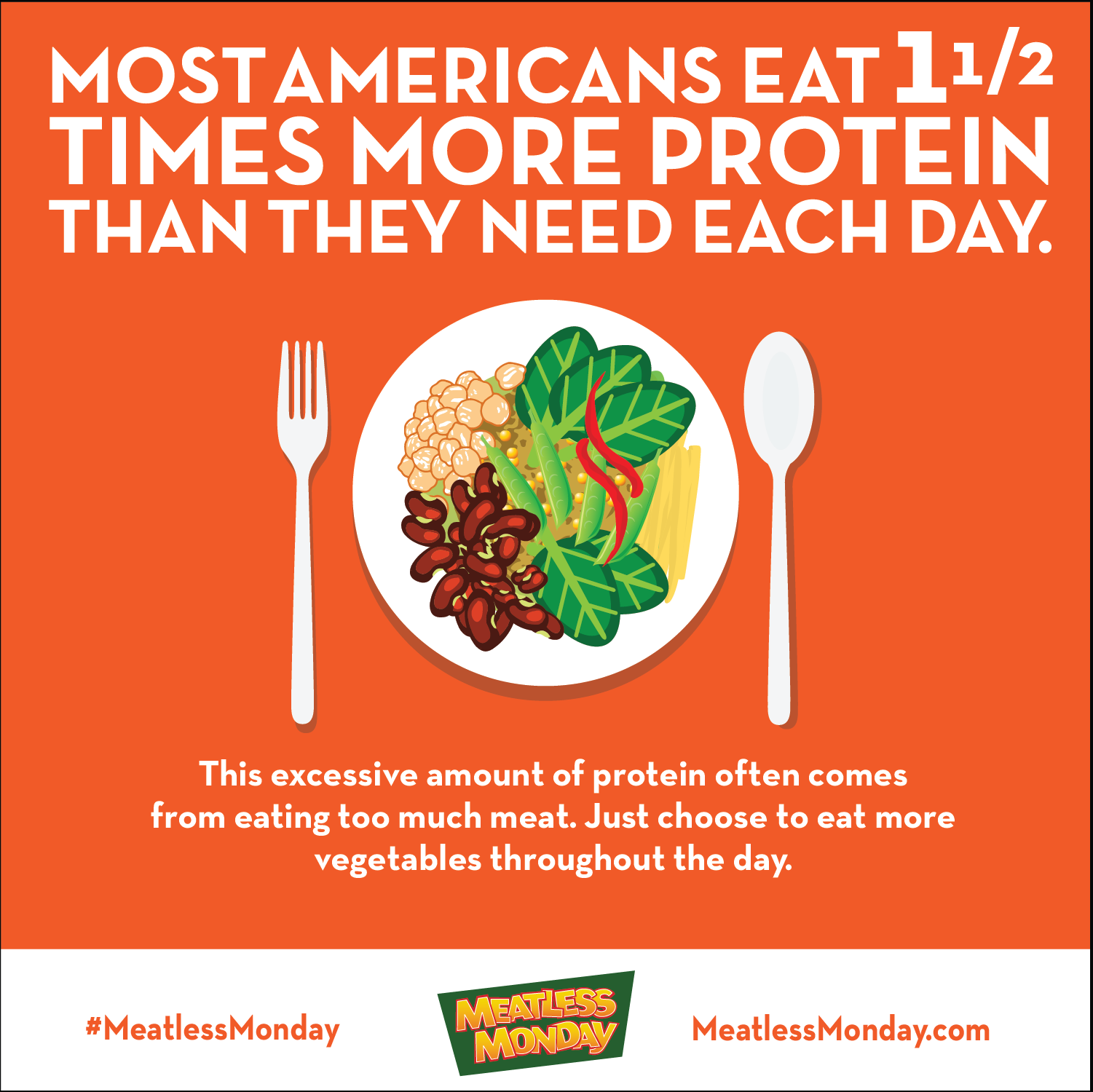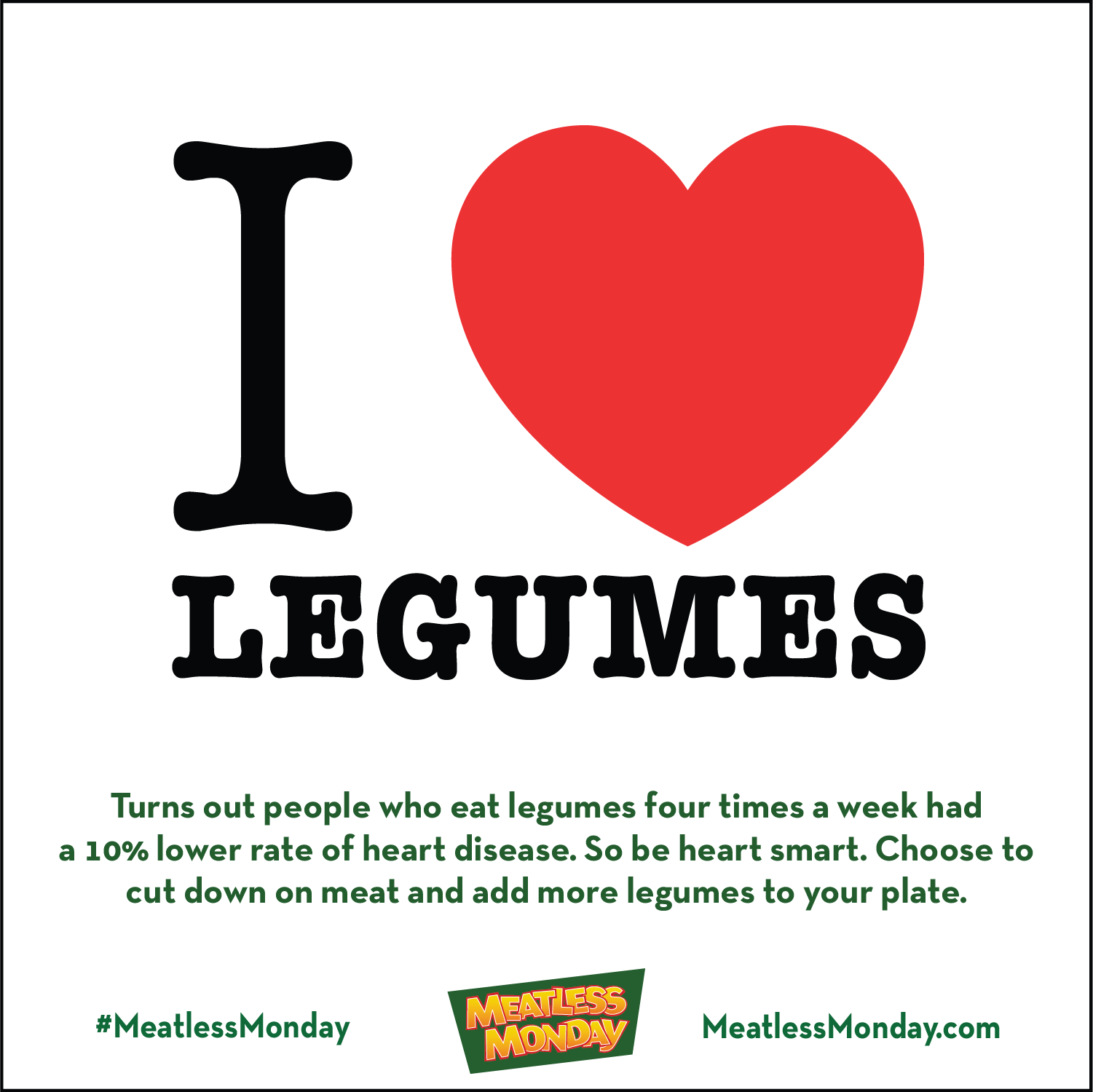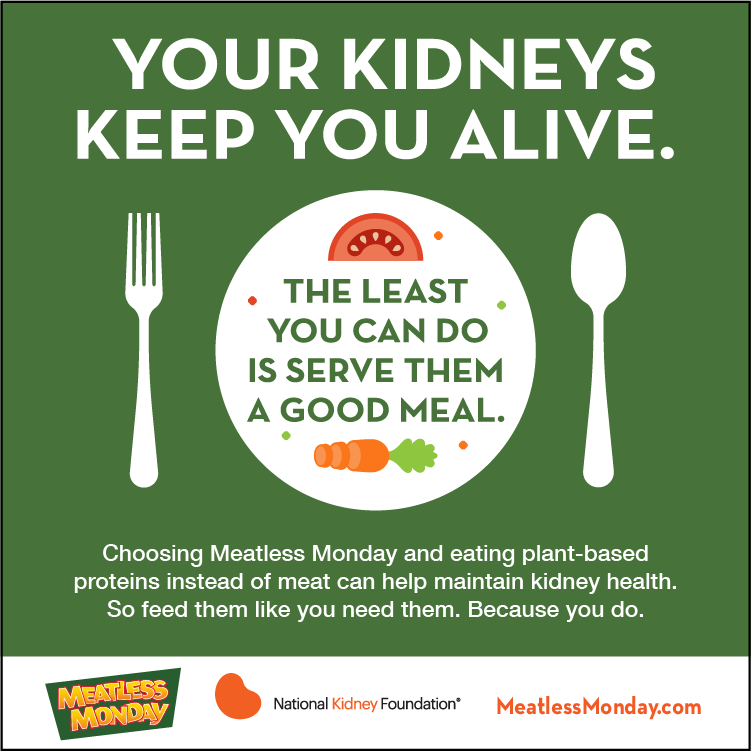Health Research About Meatless Monday
Research shows that people can enjoy several health benefits by eating less meat and diversifying their diets with a higher proportion of fruits and vegetables.
Most Americans eat one and a half times more protein than the recommended dietary allowance each day.1 Excessive consumption of red and processed meat has been linked with a variety of chronic diseases, including heart disease, type 2 diabetes, obesity and cancer. One study showed that the consumption of processed meats is associated with 42 percent higher incidence of coronary heart disease and 19 percent higher risk of diabetes.2
There are health benefits of adding more plant-based foods, and reducing meat consumption. Substituting more plant-based foods for meat is more likely to result in a healthier body weight.3,4 Cutting down on at least one half serving of red meat every day can decrease the risk of developing diabetes by nearly 15 percent.5 Eating more plant-based foods and cutting back on red and processed meats can also protect kidneys.6,7
Meals rich in fruits, vegetables, nuts and legumes contain natural antioxidants that benefit cardio-health.8,9 Those who regularly consume chickpeas and/or hummus may help prevent or offset their development and progression of several chronic diseases (cardiovascular disease, type-2 diabetes) and promote healthier, functional outcomes (e.g. weight management).10 Eating legumes 3-4 times/week could lower the risk of heart disease by 10 percent.11,12 Nuts are a rich source of protein and may help improve concentration.13,14
For more tips and resources to join the Meatless Monday movement, visit the Meatless Monday Resources page.
For more information about how a Monday cue can support behavior change, visit The Monday Campaigns Research page.
[1] What We Eat in America, National Health and Nutrition Examination Survey (NHANES) 2009-2010.
https://www.ars.usda.gov/ARSUserFiles/80400530/pdf/0910/Table_5_EIN_GEN_09.pdf
[2] Micha R, Wallace SK, Mozaffarian D. Red and Processed Meat Consumption and Risk of Incident Coronary Heart Disease, Stroke, and Diabetes Mellitus. Circulation 2010;121(21):2271–83.
https://www.ncbi.nlm.nih.gov/pubmed/20479151
[3] Ledoux TA, Hingle MD, Baranowski T. Relationship of fruit and vegetable intake with adiposity: a systematic review. Obesity Reviews. 2011; 12(5):e143-50. https://onlinelibrary.wiley.com/doi/abs/10.1111/j.1467-789X.2010.00786.x
[4] Romaguera et al. Adherence to the Mediterranean Diet is Associated with Lower Abdominal Adiposity in European Men and Women. Journal of Nutrition. 2009;139(9):1728-1737. https://academic.oup.com/jn/article/139/9/1728/4670537
[5] Schwingshackl, L., Hoffmann, G., Lampousi, AM. et al. Eur J Epidemiol (2017). doi:10.1007/s10654-017-0246-y
https://link.springer.com/article/10.1007/s10654-017-0246-y
[6] Kalantar-Sadeh K, Fouque D. Nutritional management of chronic kidney disease. New Eng J Med. 2017;377:1765-1776. https://www.nejm.org/doi/full/10.1056/NEJMra1700312
[7] Rebholz CM, Crews DC, Grams ME, et al. DASH (dietary approaches to stop hypertension) diet and risk of subsequent kidney disease. Am J Kidney Dis. 2016;68(6):853-861. https://www.ncbi.nlm.nih.gov/pmc/articles/PMC5123940/
[8] Wang S, Melnyk JP, Tsao R, Marcone MF. How natural dietary antioxidants in fruits, vegetables and legumes promote vascular health. Food Res Int 2011;44(1):14–22. http://www.agr.gc.ca/eng/abstract/?id=21168000000102
[9] Crowe, F. L., Appleby, P. N., Travis, R. C., & Key, T. J. (2013). Risk of hospitalization or death from ischemic heart disease among British vegetarians and nonvegetarians: results from the EPIC-Oxford cohort study. The American Journal of Clinical Nutrition, 97(3), 597-603.
[10] Wallace TC, Murray R, Zelman KM. The Nutritional Value and Health Benefits of Chickpeas and Hummus. Nutrients. 2016;8(12):766. doi:10.3390/nu8120766
https://www.ncbi.nlm.nih.gov/pmc/articles/PMC5188421/
[11] Marventano, S., Izquierdo Pulido, M., Sánchez-González, C., Godos, J., Speciani, A., Galvano, F., & Grosso, G. (2017). Legume consumption and CVD risk: a systematic review and meta-analysis. Public Health Nutrition, 20(2), 245-254.
[12] Bechthold, A., Boeing, H., Schwedhelm, C., Hoffmann, G., Knüppel, S., Iqbal, K., . . . Schwingshackl, L. (2017). Food groups and risk of coronary heart disease, stroke and heart failure: A systematic review and dose-response meta-analysis of prospective studies. Critical Reviews in Food Science and Nutrition, 1-20.
[13] Arab, L. & Ang, A. A cross sectional study of the association between walnut consumption and cognitive function among adult us populations represented in NHANES. J Nutr Health Aging (2015) 19: 284. https://doi.org/10.1007/s12603-014-0569-2
[14] Afshin, et al. (2014). Consumption of nuts and legumes and risk of incident ischemic heart disease, stroke, and diabetes: a systematic review and meta-analysis. The American Journal of Clinical Nutrition, Volume 100, Issue 1, 1 July 2014, Pages 278–288. https://doi.org/10.3945/ajcn.113.076901

